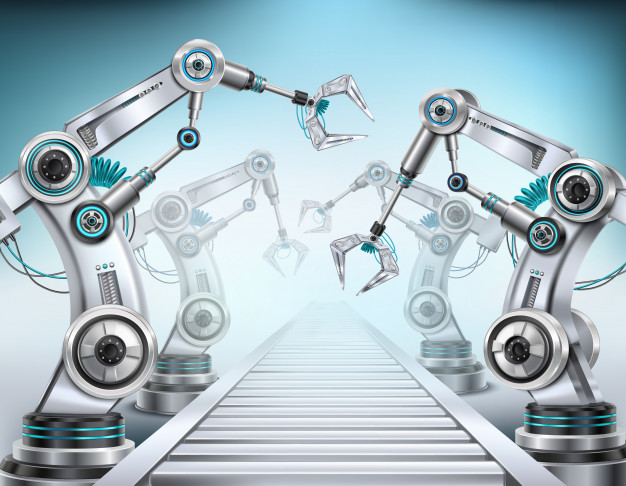The Key Benefits of Industrial Automation
The manufacturing sector is evolving at a fast pace today. Key players in the sector must adapt to industrial automation to streamline products and boost revenue growth. The automation process is reducing downtime and providing customer-centric services. Today, consumers are more selective about goods and services. It has resulted in the reduction of turnaround times and yields better productivity.
The market is getting flooded with new competitors with each passing day. And the dynamic market trends are forcing manufacturers to deliver quality products in a limited time. Industrial automation and IIoT are addressing these problems with effective solutions to increase production levels, reduce operational downtime and utilize the manufacturing resources better.
What is Industrial Automation?
It is defined as the system comprising of interacting technologies and automated control devices resulting in the automatic functioning of manufacturing operations. The process reduces human intervention significantly. The automation process is using devices like PLCs, PCs, PACs, and many other types of industrial communication technologies.
The traditional manufacturing process has given way today for the rise of modern industrial automation processes. The purpose of automation is to increase production levels and reduce wastes. The replacement of manual labor and helps companies save on labor wages & benefits. The automation process is using controlled systems computers or robots to monitor and handle machines.
Here are the benefits of industrial automation –
Less Delay
The automation process eliminates delays caused by human error or injury by performing repetitive jobs in material handling and production. It also means fewer wasted resources due to mistakes.
Higher Quality
The automated devices & robots do not experience fatigue and don’t lose focus on work. The industrial automation reduces errors and helps enhance the quality standards.
More Data
It is easy now for Managers to calculate how productive their facilities are. The experts get the data through detailed metrics automatically from their devices. The collected actionable information can be used in making necessary adjustments.
Higher Flexibility
The automated devices are programmed to do various tasks. The methods can be integrated into the manufacturing process at a very affordable cost. It increases production flexibility.
Enhanced Management
Mostly the tasks are handled without intensive supervision and less time is spent on time micromanagement. Thus, experts can focus on other aspects of their job.
Accident Prevention
Automated machinery in manufacturing helps prevent incidents caused by the operator’s mistakes. The odds are fewer of injuries occurring due to the mishandling of heavy equipment. The workers are also at lower risk of putting excess stress on their bodies.
Conclusion: The manufacturing companies reap the benefit out of industrial automation to streamline their manufacturing activities and make them cost-effective. The data generated by IIoT enable smart devices to provide insights and helps the management to make informed decisions. It is important in today’s competitive environment to adopt smart manufacturing processes to boost their profits.
